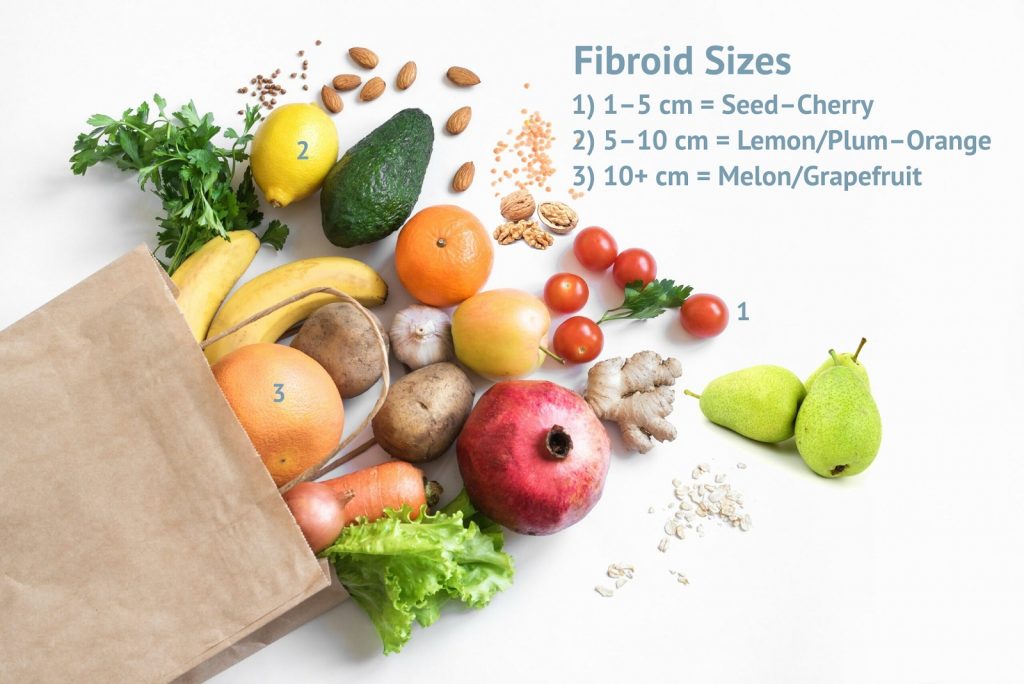You’re doing your best to maintain a healthy lifestyle of eating right and daily exercise. But for some frustrating reason, you’ve noticed an unexplained stomach bulge and weight gain. While it appears there is no rhyme or reason for this, you wonder if there is a link between your weight gain and possible fibroids.
Nearly every woman develops fibroids in her lifetime. But not all experience painful symptoms such as cramps and pelvic pain. Some aren’t in pain at all but notice bloating and added pounds without realizing what’s happening.
Have you noticed these signs of fibroids and weight gain?
- Bloating or swelling in the lower abdomen
- Weight gain
- Excessive fatigue
- Decreasing desire or ability to exercise
- Heavy or inconsistent menstrual bleeding
- Changes in hormone levels
- Abnormally long periods
- An urge to overeat and sudden cravings
If you are experiencing unexpected weight gain or a noticeable stomach bulge reminiscent of being pregnant, it could be due to fibroids. As a result, you and your doctor should have a talk about your fibroids and weight gain.
The Link Between Fibroids and Weight Gain
There are several factors that play into fibroids and weight gain. But let’s start with the obvious: not all fibroids stay small. As they grow, they weigh more. And that’s a lot of excess weight to be carrying around. These non-cancerous growths are under hormonal control—specifically, estrogen—and tend to grow at a more rapid pace during the reproductive years when hormone levels are at their highest.
Fibroids can also grow in clusters to create a large, heavy mass. In many cases, they can vary from the size of a pea or bean to a melon or grapefruit and cause swelling of the abdomen. As a result, this can make a woman appear pregnant and look like she has gained a lot of weight.
1. Small fibroids
Between 1 cm and 5 cm. Basically, the size of a small seed to a cherry.
2. Medium fibroids
Between 5 cm to 10 cm. Can be the size of a lime or lemon to an orange.
3. Large fibroids
The size of a mango, grapefruit, watermelon, or a small pumpkin.

But the link between fibroids and weight gain is so much more than about growth. One of the telltale fibroid symptoms is heavy or prolonged periods. When this happens, a woman can develop anemia, a common blood disorder that affects more than 3 million Americans. Having anemia can make you feel tired and weak, leading many women to scale back on exercising and instead sit on the couch or in bed. This too leads to weight gain.
Can I Reduce My Risk of Fibroids and Weight Gain?
The best place to start is by maintaining your routine of clean eating and daily exercise. Eliminate red, processed meat, salty foods, and certain carbohydrates that lead to weight gain. Birth control pills and insulin-like growth factors can also lead to fibroid growth.
- Eat more fruits, especially citrus, and vegetables
- Avoid consuming too much alcohol
- Drink more dairy
- Increase your Vitamin D intake
- Lower your stress levels
- Get more exercise

If diet and exercise aren’t enough to decrease the stomach bulge and improve your weight after a fibroid diagnosis, you may want to consider a revolutionary procedure known as Uterine Fibroid Embolization (UFE). UFE is unique because it treats fibroids without having to go through a painful surgery and lengthy recovery time. UFE uses image-guided radiology and tiny particles to safely cut off the blood supply to fibroids, causing fibroids to shrink and die. As a result, your fibroids and weight gain will be a thing of the past.
Other Benefits of UFE Include:
- No hospital stay
- Shorter recovery period (one week in some cases)
- No scarring
- Dramatic reduction in fibroid symptoms
- Uterus is spared
- Less risk than fibroids surgery
- Over 90% success rate
Get a FREE Phone Screening with Fibroid Institute
Are you suffering from an unexplained stomach bulge or weight gain? This could be a sign that either you have fibroids or that the fibroids you knew about are growing, causing problems, and need to be addressed soon. The good news is, thousands of women have had their fibroids symptoms treated with Uterine Fibroid Embolization (UFE).
Being fibroid free can be as easy as 1-2-3 with UFE. Rather than a hospital stay, UFE is a same-day outpatient procedure. In fact, at Fibroid Institute, we offer UFE to patients in the comfort of our fibroid clinics equipped with advanced medical technology.
The specialized team at Fibroid Institute, with Dallas and Houston fibroid doctors, have helped thousands of women discover the joys of living fibroid free. With each UFE procedure, patients are empowered to achieve their full potential without being limited by fibroid symptoms. For many women, the UFE procedure changed their lives. Meet some of these women here:
Request a free 10-15 minute phone screening to determine if you are a UFE candidate. After the screening, if you qualify for UFE, you can schedule your onsite or telehealth consultation. Most major medical insurance providers cover the cost of UFE.
At Fibroid Institute Dallas and Fibroid Institute Houston, we are dedicated to helping you become #FibroidFree. Get started now by completing the form below or by calling our Dallas fibroid clinics at 214-838-6440 or Houston fibroid clinics at 713-903-3733.
*Patient names and/or photos may be changed to protect confidentiality.
This information is not a substitute for professional medical advice. Prior to starting any new treatment or if you have questions regarding a medical condition, always seek the advice of your doctor or other qualified health provider.
Fibroid Institute Texas serves the Dallas and Houston areas including Fort Worth, Grand Prairie, HEB, Arlington, Hutchins, Irving, Duncanville, DeSoto, Cedar Hill, Lancaster, Cockrell Hill, Highland Park, University Park, Park Cities, Garland, Mesquite, Richardson, Dallas, Sherman, Houston, Sugar Land, Katy, Webster, Clear Lake, The Woodlands, Universal City, Spring, Kingwood, Stafford, Conroe, Texas City, Cypress, League City, Bellaire, Addison, Carrollton, Plano, Frisco, McKinney, Allen, and more.

